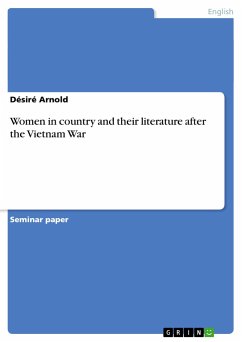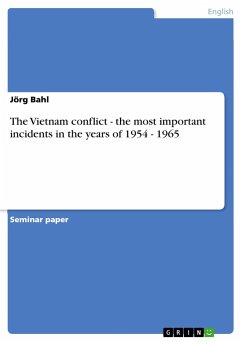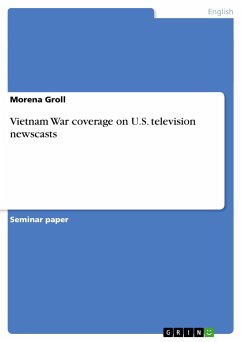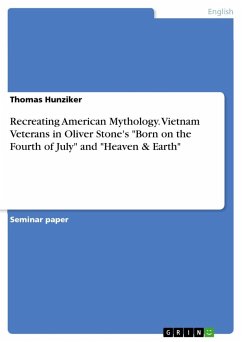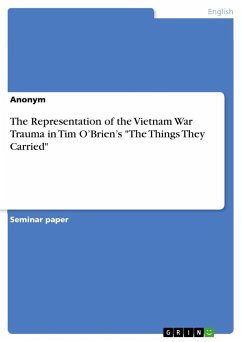Thesis (M.A.) from the year 2007 in the subject American Studies - Literature, grade: 2,0, University of Augsburg, language: English, abstract: The 20th century was a century of conflict. Never before in the history of mankind had there been that many nations at war, fighting each other with huge armies and weapons of mass destruction. The two World Wars and the ideological battle between East and West had a huge impact on the social and political world. Many of today´s conflicts can be traced back to the great wars and years that followed them, in which the nations involved tried to find a new balance and world order.The USA took part in several significant wars and is now the last remaining super-power in the world. Of all the conflicts the U.S. was involved in, its role in the Second World War and the war in Vietnam are the two most vividly remembered. Throughout history, people have constructed and displayed a sense of their past, their collective memory and cultural knowledge through works of art. In the twentieth century, this process of myth-making has been fulfilled mainly by novels and movies. Many of these "vehicles of memory" have portrayed the wars and captured the atmosphere in America at that time. Yet, there is a big difference in the way and the extent to which WW II and Vietnam have been digested inthe conscience of the nation. Although the Second World War affected more families directly and more Americans fell in those years than during the war in Vietnam, there seems to be a tendency to suppress the memories of the latter. It is only in times of crisis (as the current conflicts in Afghanistan and Iraq) that the nightmarish image of "Vietnam" appears in media commentaries and political speeches and becomes a topic of public awareness. What is the reason? What role did literature play in the process of coming to terms with the terrible experience of war? Which lessons do writers of war literature offer in terms of dealing with present or future conflicts? In this thesis, I will try to answer questions like these by examining American post-warliterature after WW II and Vietnam. Joseph Heller´s Catch 22, Michael Herr´s Dispatches, Ron Kovic´s Born on the Fourth of July and James A. Michener´s Tales of the South Pacific will all be in the focus of this analysis. As these books cover thirty years, the similarities and differences of their portrayal of war and combat, and the distinctive narrative styles and perspectives will give us a better understanding of the changes that took place in American society, its self-perception and the nature of war.
Hinweis: Dieser Artikel kann nur an eine deutsche Lieferadresse ausgeliefert werden.
Hinweis: Dieser Artikel kann nur an eine deutsche Lieferadresse ausgeliefert werden.


